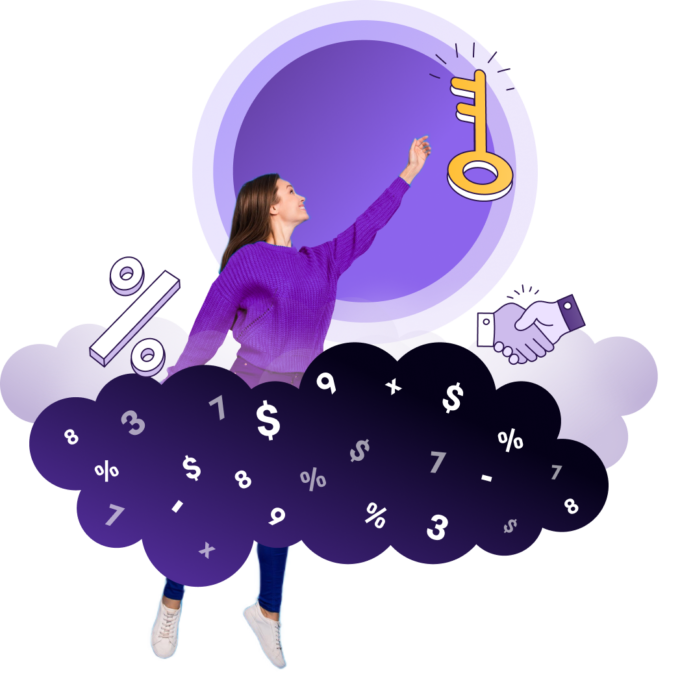What is bankruptcy
Bankruptcy is a legal process that helps relieve Canadians of their outstanding unsecured debts (i.e., credit cards, tax debt, payday loans). It’s regulated by the Office of the Superintendent of Bankruptcy (OSB) and administered by a Licensed Insolvency Trustee (LIT)—formally Bankruptcy Trustees.


Should I file for bankruptcy?
Bankruptcy may be the right solution if you:
-
Are unable to meet your financial obligations
-
Are facing wage garnishments or legal action from creditors
-
Have explored other debt relief options without success
Is personal bankruptcy right for me?
While bankruptcy grants you immediate protection from creditors, it may affect your assets and credit rating, and you’ll still be required to pay some debt.
Advantages
-
All interest payments, wage garnishment, and collection activity stops
-
Some assets, such as your home and car, may be protected depending on your province
-
Most unsecured debt is cleared
-
In some cases, your student loan debt can be included
Considerations
-
Your non-exempt assets will be given to the trustee as payment to creditors
-
Your credit cards will be cancelled
-
Your credit rating will be affected for six or seven years, depending on your province
-
You'll be required to pay child or spousal support, court-imposed fines, and, in some cases, student loans.
-
You'll be required to submit monthly financial statements and make monthly payments to your trustee.
How do bankruptcies work in Canada?
Only a Licensed Insolvency Trustee (LIT) can administer bankruptcies, which are regulated by the “Bankruptcy and Insolvency Act” of Canada. If your LIT determines that bankruptcy is the appropriate solution for your financial situation, you will work together to complete your application.

Before you begin
During the bankruptcy process, you’ll work closely with our team of debt solutions professionals.
After discussing other debt management options, choosing bankruptcy should be considered a last resort. Our debt repayment calculator can also help you better understand the solutions available—like a consumer proposal.
Meet with a debt solutions professional
During your no-obligation consultation, we’ll review your financial situation and suggest the best debt repayment option for you. If that’s bankruptcy, we’ll review your assets, income, and expenses to estimate your payment amount. The first appointment is always free, confidential, and judgment-free.
We’ll prepare your bankruptcy documents
After the consultation—if you decide to move forward with bankruptcy—you'll work with our team to prepare the necessary payments. You may be required to provide additional documentation—especially if your bankruptcy includes assets.
Review and file your documents with your LIT
Once all documents are gathered and verified, your trustee will walk you through the bankruptcy process to ensure you understand your responsibilities. After you’ve signed the paperwork and your trustee submits your documents to the OSB, you’re officially declared bankrupt. Once filed, all collection actions—including wage garnishments—by creditors must stop.
Complete your bankruptcy duties
During your bankruptcy you must complete certain duties, such as making monthly payments, reporting your income and expenses, and attending two mandatory financial counselling sessions. Our team is also required to file your income taxes on your behalf during the year of your bankruptcy.
Our team will explain these duties and obligations to you during your initial consultation and your filing.
Receive your bankruptcy discharge
The bankruptcy process typically lasts for nine to 21 months, depending on your income and whether you’ve filed for bankruptcy before. Once all your obligations are fulfilled, you’ll be discharged from bankruptcy.
After your discharge, it’s time to focus on rebuilding your financial health. This includes establishing good financial habits, improving your credit, and working toward a more secure financial future.
Important to keep in mind
Throughout the bankruptcy process, you’ll need to work closely with our team. You may need to provide additional documentation, attend meetings, and cooperate with any asset sales or distributions.

Consumer proposal: an alternative to bankruptcy
Get your finances back on track without going bankrupt. A consumer proposal gives creditors a reasonable repayment—and gives you a financial fresh start.
-
The amount you pay is determined by what you can afford.
-
The amount of debt you repay could be reduced by up to 80%.
-
In most cases, you will keep all your assets, including your car, home, and RRSPs.
-
There is a lesser impact on your credit rating compared to bankruptcy.
Debt happens more than you think
We've helped thousands of Canadians take control of their finances and live happier, debt-free lives.
How bankruptcies work in Canada
Personal bankruptcy is a solution to debt under the Canadian Bankruptcy and Insolvency Act. It allows you to clear almost all your debt, such as tax debt, credit cards, overdue utility bills, lines of credit, and payday loans. Bankruptcy may be your best option after you’ve explored all other ways to manage your debt.
In Canada, only Licensed Insolvency Trustees (LITs)—formerly known as Bankruptcy Trustees—are authorized to administer bankruptcies. Your trustee will guide you through the entire process and act as the intermediary between you and your creditors.
As long as you don’t have joint debt, your family won’t be affected by your bankruptcy. If your spouse has co-signed or endorsed your debt, they’ll be equally responsible or solely responsible for maintaining payments after you file.
Children aren’t affected by a bankruptcy, and you’ll continue to receive child benefit payments (if applicable). RESPs, however, aren’t a protected asset in some provinces, and can be seized to pay down your debt.
If you complete your duties and payments on schedule and no creditors object to your discharge, you’ll be eligible for an automatic discharge from bankruptcy in as little as nine months. First time bankruptcies last nine or 21-months—with surplus income—and second time bankruptcies last 24 or 36-months with surplus income. If you have high-income tax debt or a creditor opposes your discharge, the Court will decide the length of your bankruptcy. Learn more about how long bankruptcy lasts in Canada.
When you file for bankruptcy in Canada, it becomes public record. This means that it can be accessed by the public through the Office of the Superintendent of Bankruptcy (OSB). However, it’s not something that’s advertised or widely publicized.
Employers cannot fire you for filing for bankruptcy. Canadian employment law protects you from termination solely because you declare bankruptcy.
Certain professions—such as insurance, real estate, law, or financial planning—may require you to disclose your bankruptcy to the professional association. In some cases, employers may ask you to disclose your bankruptcy or perform a credit check when you apply for a new role.
Take the first step to debt freedom
Speak to one of our debt solutions professionals during a free, no-obligation consultation.
You can count on us!
LITs are the only federally regulated debt professionals qualified to offer solutions such as bankruptcies and consumer proposals. When you choose a LIT, you can be assured that you’re dealing with someone who‘s proven they have the knowledge, experience, and skills to help you make an informed decision about your finances.
- 50+ Years of experience
- 70+ Locations
- 100k+ Canadians helped

Loading
